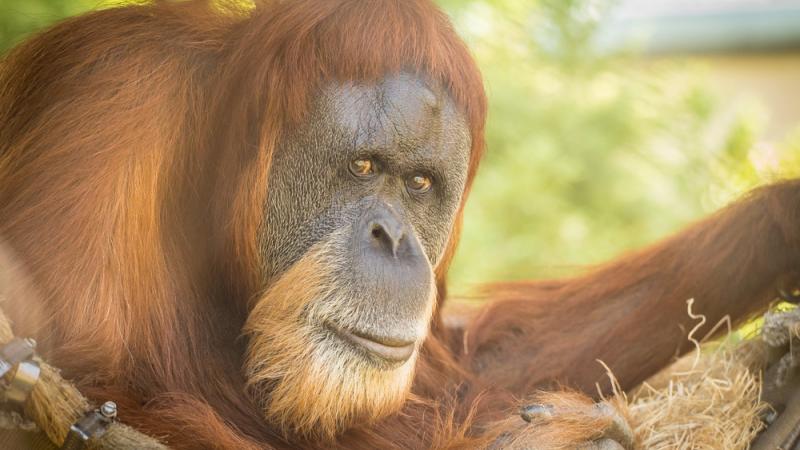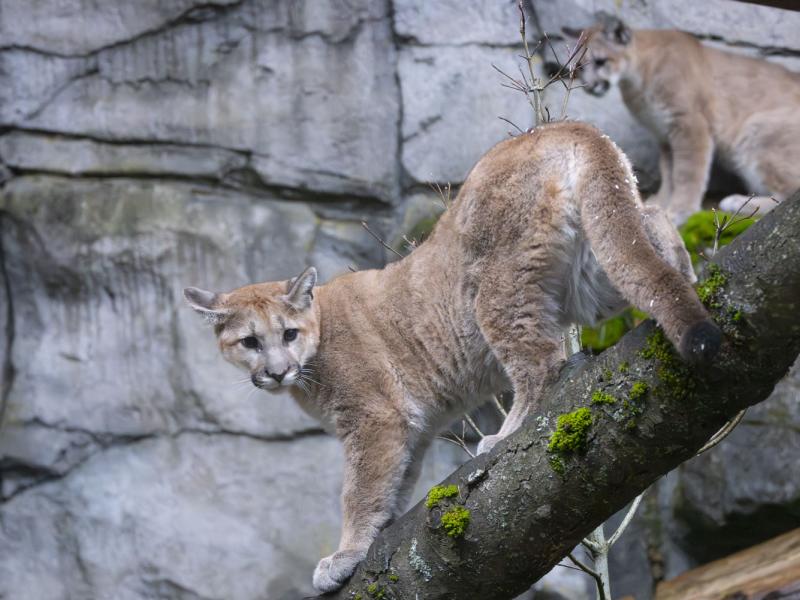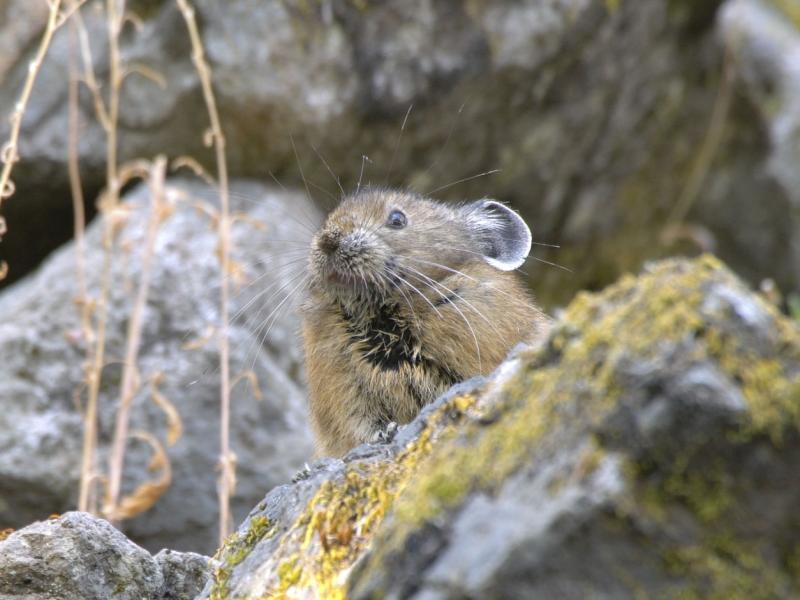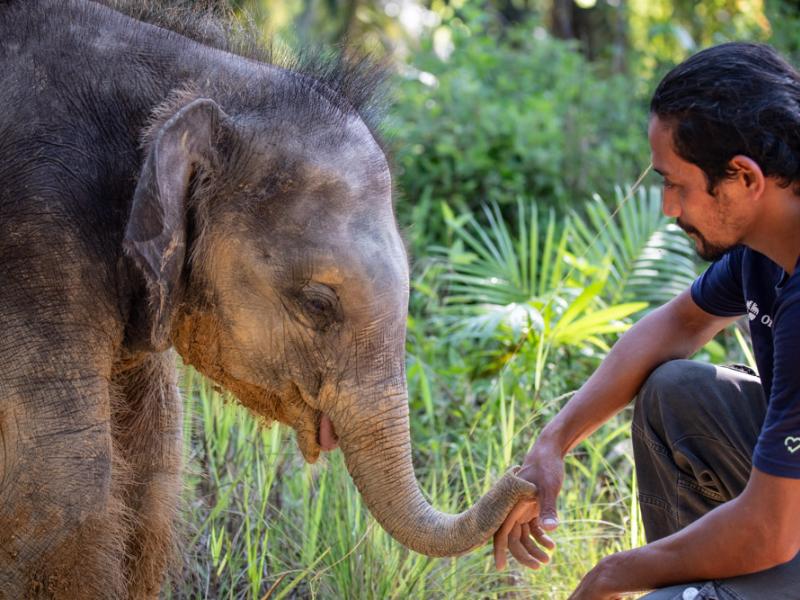Nation's oldest Sumatran orangutan turns 58

Keepers say Inji, who arrived at the zoo in 1961, is in 'amazing shape' for her age
The Oregon Zoo's oldest resident, ultra-geriatric Sumatran orangutan Inji, turned 58 this month. She is the oldest of her species on the continent.
"She is the oldest Sumatran orangutan in any accredited zoo in North America," said Asaba Mukobi, the zoo's senior primate keeper. "Wild orangutans live about 40 years on average, so Inji's certainly among the very oldest of her species on the entire planet."
Inji's actual date of birth is unknown. She was born in the wild around 1960, came to the United States through the pet trade (legal at the time) and was donated to the zoo by her owner in 1961. She was estimated to be around a year old when she arrived at the zoo Jan. 29, 1961 — 57 years ago this month.
"She's in amazing shape for her age," Mukobi said. "She has no major health concerns — she isn't taking any special medication beyond aspirin. Her age and remarkable condition say a lot about the quality of care she's received over the years."
Inji does need a little help getting around now, and makes good use of some extra handholds keepers have installed around the habitat. Using decommissioned fire hose donated by the Clackamas Fire District, keepers have also constructed a couple simian-strength hammocks to mimic the arboreal nests used by orangutans. She shares her habitat with two younger orangutans and two gibbons.
"We're thankful that we've been able to give Inji a good home, but it's heartbreaking to think about the circumstances that brought her here," Mukobi said. "Even though the pet trade is illegal now, it still exists. It is considered a major threat to orangutans' survival, along with human encroachment and habitat loss from palm oil plantations. Orangutans are at the brink of extinction — especially in Sumatra, where Inji comes from."
The name "orangutan" comes from the Malay "orang," meaning man, and "hutan," meaning wilderness or jungle. According to Mukobi, many zoo visitors are struck by the orangutans' close resemblance to humans.
"Visitors feel a very strong connection to Inji and the other orangutans," Mukobi said. "Building on that connection, we're trying to create awareness about what's happening to orangutans in their native lands and let people know how they can help."
People interested in encouraging major companies to pursue wildlife-friendly palm oil can do so via the zoo's Use Your Reach project. Through donations to the Oregon Zoo Foundation, the zoo also supports the Borneo-based Hutan-Kinabatangan Conservation Program, which works to reduce human-wildlife conflict for species including orangutans and elephants.
In late spring, the zoo plans to break ground on a new habitat for great apes: Primate Forest, expected to open in 2020, will incorporate much of the current Red Ape Reserve along with an expanded and improved home for chimpanzees. Primate Forest is one of eight major projects made possible by the community-supported zoo bond measure passed in 2008. With five of these projects now complete, the final three will be managed as a single construction project to save construction costs and increase efficiency.
More News

Rescued cougar cubs are venturing out
A pair of orphaned cougar cubs, rescued and brought to the zoo by Washington Department of Fish and Wildlife staff in November, have begun exploring their outdoor habitat.April 17, 2025

Zoo seeks pika watchers for summer season
The Oregon Zoo is recruiting volunteers for Cascades Pika Watch.April 15, 2025

Zoo convenes action for imperiled elephants
Sabah government representatives joined conservation NGOs, local communities, palm oil producers, and tourism operators this week in the fight to save the world’s smallest elephants from extinction.April 11, 2025

